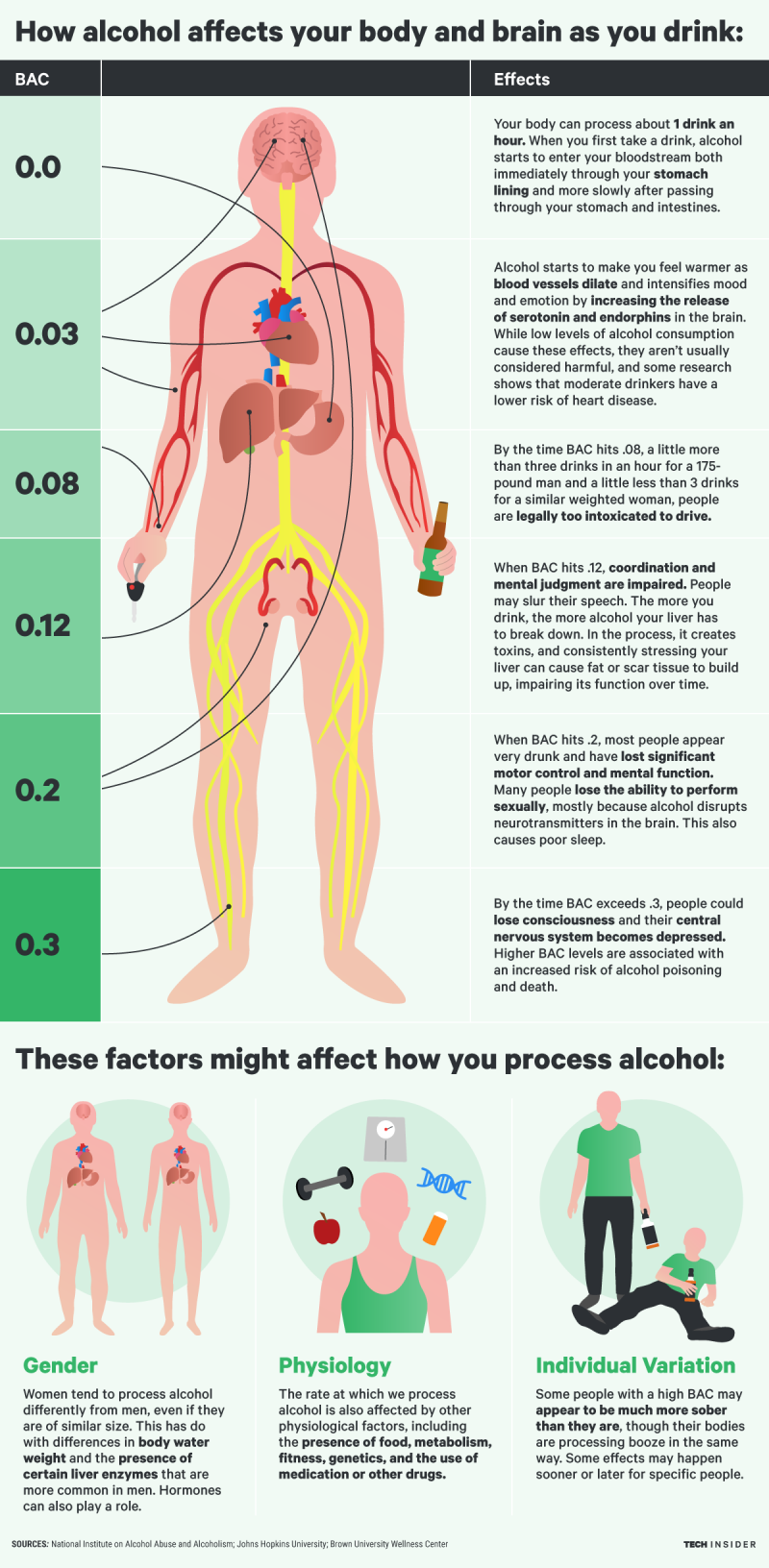Impact on Students
Alcohol consumption can impact your life in a variety of ways.
Drinkers vs. Non-drinkers: Research Findings:
- Verbal and non-verbal information recall was most heavily affected with 10 percent performance decrease in alcohol users. Significant neuropsychological deficits exist in early to middle adolescents (ages 15 and 16) with histories of extensive alcohol use
- Adolescent drinkers perform worse in school, are more likely to fall behind and have an increased risk of social problems, depression, suicidal thoughts and violence.
- Alcohol affects the sleep cycle, resulting in impaired learning and memory, as well as disrupted release of hormones necessary for growth and maturation.
- Alcohol use increases risk of stroke among young drinkers. Compared to students who drink moderately or not at all, frequent drinkers may never be able to catch up in adulthood, since alcohol inhibits systems crucial for storing new information as long-term memories and make it difficult to immediately remember what was just learned. Additionally, those who binge one a week or increase their drinking from age 18 to 24, may have problems attaining the goals of young adulthood- marriage, educational attainment, employment, and financial independence. Rather than outgrowing alcohol use, young abusers are significantly more likely to have a drinking problem as adults.
- Alcohol has a negative effect on energy and REM sleep cycles. Impairing the quality of your sleep impairs the quality of your ability for remembering things.
According to a 1992 report from the CORE institute, 41% of all academic problems stem from alcohol abuse. Alcohol is associated with missed classes and poor performance on tests and assignments, causing lower GPA’s. In general, the more a student drinks, the lower his or her grades are. It is believed that a person’s ability to think critically can be impaired for up to 30 days following the consumption of alcohol.
Harvard student campuses report that 68% of non-binge drinkers had their studies or sleep interrupted because of other students drinking.
According to the CORE institute, an organization that surveys college drinking practices, the average student spends $900 per year on alcohol and the average cost of textbooks is $450
Student loan money and money set aside for education related purchases is often spent on alcohol.
Alcohol can be a part of social occasions and celebrations with friends and family, but University students often binge drink. Drinking too much can cause a person to be moody or defensive, act abusive or aggressive and/or lie to the people they love. Eventually, relationships with family, friends and co-workers become strained and distant.
BINGE DRINKING AFFECTS:
INCREASES AGGRESSION AND THE RISK OF PHYSICALLY ASSAULTING ANOTHER PERSON.
Getting drunk and starting arguments, getting into fights or being physically abusive toward the people you love is a sure way to alienate friends and sever relationships. It’s also a good way to end up in jail.
INCREASES THE CHANCES OF ENGAGING IN RISKY SEXUAL ACTIVITY.
Drinking to excess lowers inhibitions, making it more likely to engage in risky behaviors like having unprotected sex, or sex with multiple partners5. Not only can this cause problems with relationships, it increases the risk of unintended pregnancy and STDs.
GETS IN THE WAY OF A HEALTHY SEX LIFE.
One of the myths about alcohol is that it is an aphrodisiac, but it actually reduces sexual performance. For men, excessive drinking lowers the production of testosterone and can lead to impotence, low libido and even sterility. In many cases, the sober person in a relationship lacks the desire to engage in sexual activity with their drinking partner.
LEADS TO EMBARRASSING BEHAVIOR THAT CAN STRAIN RELATIONSHIPS.
When you’re drunk, good judgement goes right out the window, and it’s easy to say or do something you’ll regret the next day. Just because everyone is drinking doesn’t mean it’s all in good fun. Drunk words and actions can be hurtful, and they can have serious effects on friendships and relationships. Moderate your drinking and help friends stay in control to prevent regrets.
What would you do? It's best to think out how to respond to situations before they happen. Click here to read through several common scenarios faced by college freshman and think about what you would do in repsonse.
